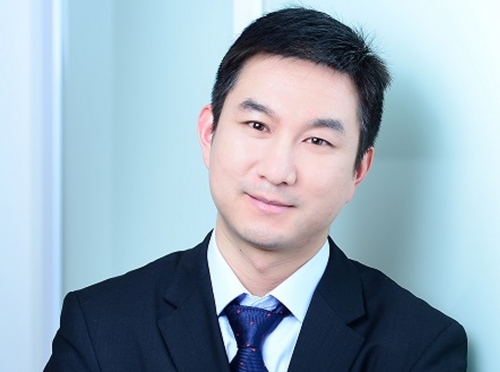Faculty
Self-introduction
Dr. Huanhuan Cui obtained his Ph.D. in Biology from the Free University of Berlin in 2016. In December 2018, he joined the Southern University of Science and Technology. His primary research interests revolve around the investigation of mechanisms and the development of methods for gene transcription and epigenetic regulation. Additionally, he focuses on the identification and functional study of cis-regulatory elements and trans-acting factors involved in RNA translation.
Research Interests:
Gene Transcription and Epigenetic Regulation;
RNA Regulation and Translation Control;
Professional Experience:
2018.12 – present, Southern University of Science and Technology;
2017.09 – 2018.11, Clinical Research Manager, BGI Genomics;
2016.05 – 2017.06, PostDoc, Charite Universitaetsmedizin Berlin;
2010.09 – 2011.08, Research Assistant, Humboldt University of Berlin;
Educational Background:
2011.09 – 2016.04, Ph.D. Biology, Free University of Berlin;
2008.09 – 2010.06, M.S. Animal Genetics, Northwest A&F University;
2004.09 – 2008.06, B.E. Bioengineering, Northwest A&F University;
Selected Publication:
1. Cui H, Yi H, Bao H, Tan Y, Tian C, Shi X, Gan D, Zhang B, Liang W, Chen R, Zhu Q, Fang L, Gao X, Huang H, Tian R, Sperling SR, Hu Y, Chen W (2022) The SWI/SNF chromatin remodeling factor DPF3 regulates metastasis of ccRCC by modulating TGF-β signaling. Nature Communications.
2. Yang C, Liu Y, Hu Y, Fang L, Huang Z, Cui H, Xie J, Hong Y, Chen W, Xiao N, Li Q, Liu W-H, Xiao C (2022) Myc inhibition tips the immune balance to promote antitumor immunity. Cellular & Molecular Immunology.
3. Tian S, Zhang B, He Y, Sun Z, Li J, Li Y, Yi H, Zhao Y, Zou X, Li Y, Cui H, Fang L, Gao X, Hu Y, Chen W (2022) CRISPR-iPAS: a novel dCAS13-based method for alternative polyadenylation interference. Nucleic Acids Res.
4. Sun T, Zhang Z, Tian L, Zheng Y, Wu L, Guo Y, Li X, Li Y, Shen H, Lai Y, Liu J, Cui H, He S, Ren Y, Yang G (2022) Dualistic classification of high grade serous ovarian carcinoma has its root in spatial heterogeneity. J Adv Res.
5. Zhou J, Zhang B, Li H, Zhou L, Li Z, Long Y, Han W, Wang M, Cui H, Li J, Chen W, Gao X (2022) Annotating TSSs in Multiple Cell Types Based on DNA Sequence and RNA-seq Data via DeeReCT-TSS. Genomics Proteomics Bioinformatics.
6. Fang L, Li G, Sun Z, Zhu Q, Cui H, Li Y, Zhang J, Liang W, Wei W, Hu Y, Chen W (2021) CASB: a concanavalin A-based sample barcoding strategy for single-cell sequencing. Mol Syst Biol.
7. Yi H, Li G, Long Y, Liang W, Cui H, Zhang B, Tan Y, Li Y, Shen L, Deng D, Tang Y, Mao C, Tian S, Cai Y, Zhu Q, Hu Y, Chen W, Fang L (2020) Integrative multi-omics analysis of a colon cancer cell line with heterogeneous Wnt activity revealed RUNX2 as an epigenetic regulator of EMT. Oncogene.
8. Fang L, Wang W, Li G, Zhang L, Li J, Gan D, Yang J, Tang Y, Ding Z, Zhang M, Zhang W, Deng D, Song Z, Zhu Q, Cui H, Hu Y, Chen W (2020) CIGAR-seq, a CRISPR/Cas-based method for unbiased screening of novel mRNA modification regulators. Mol Syst Biol.
9. Cui H, Schlesinger J, Schoenhals S, Tonjes M, Dunkel I, Meierhofer D, Cano E, Schulz K, Berger MF, Haack T, Abdelilah-Seyfried S, Bulyk ML, Sauer S, Sperling SR (2016) Phosphorylation of the chromatin remodeling factor DPF3a induces cardiac hypertrophy through releasing HEY repressors from DNA. Nucleic Acids Res.
10. Cui H, Bansal V, Grunert M, Malecova B, Dall'Agnese A, Latella L, Gatto S, Ryan T, Schulz K, Chen W, Dorn C, Puri PL, Sperling SR (2017) Muscle-relevant genes marked by stable H3K4me2/3 profiles and enriched MyoD binding during myogenic differentiation. PLoS One.
11. Grunert M, Dorn C, Cui H, Dunkel I, Schulz K, Schoenhals S, Sun W, Berger F, Chen W, Sperling SR (2016) Comparative DNA methylation and gene expression analysis identifies novel genes for structural congenital heart diseases. Cardiovasc Res.
12. Ben Jehuda R, Eisen B, Shemer Y, Mekies LN, Szantai A, Reiter I, Cui H, Guan K, Haron-Khun S, Freimark D, Sperling SR, Gherghiceanu M, Arad M, Binah O (2018) CRISPR correction of the PRKAG2 gene mutation in the patient's induced pluripotent stem cell-derived cardiomyocytes eliminates electrophysiological and structural abnormalities. Heart Rhythm.



